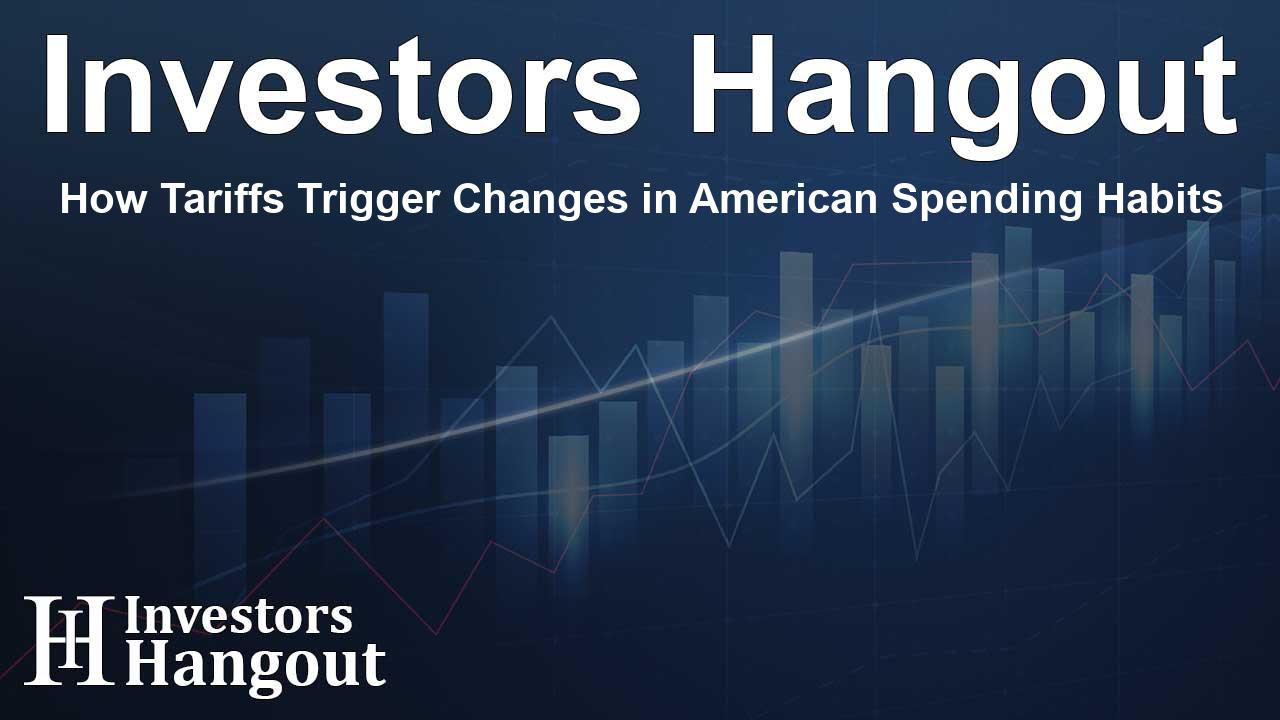How Tariffs Trigger Changes in American Spending Habits

How Tariffs Trigger Changes in American Spending Habits
Recent surveys highlight a shift in American consumer behavior as discussions about new tariffs gain momentum. Many Americans are not waiting for policy changes; they are proactively adapting their spending in response to anticipated increases in costs. This sentiment is echoed across various demographics, reflecting a national trend as people prepare for potential financial impacts.
Concerns Over Rising Tariffs
Statistics reveal that a significant portion of the population is concerned about the impact of tariffs. Reports indicate that over half of Americans, about 54%, believe that U.S. tariffs will have a detrimental effect on the economy. Additionally, nearly 48% foresee a rise in tariffs within the upcoming year. These concerns extend beyond theoretical implications; many respondents express that they are already feeling the financial strain, with 77% anticipating that tariffs will directly affect their household budgets.
Personal Impact on Households
Economic experts have identified that individuals are particularly attuned to changes that affect their everyday expenses. With 41% of respondents indicating they are already experiencing financial pressure from these tariffs, it’s apparent that the economic conversation is not merely academic. Instead, it resonates deeply within families as they navigate their financial resources.
Political Divisions and Public Sentiment
The discussion about tariffs has also led to observable political divides. The survey found that a larger majority of Democrats, around 73%, and 55% of Independents believe that tariff increases will negatively affect the economic landscape. In stark contrast, only 33% of Republicans share this outlook, showcasing how perceptions of economic policies can be influenced by political affiliations.
Behavioral Adjustments among Consumers
In response to rising prices, Americans are making significant adjustments to their purchasing decisions:
- 66% report noticing price hikes in grocery items, while 42% see similar trends in clothing.
- A striking 71% of respondents have begun altering their buying choices, or are contemplating such changes.
- 61% have opted for more affordable brands in recent months to cope with rising costs.
- 35% perceive tariffs as a hidden tax, further complicating their purchasing decisions.
Experts note these transitions reflect a broader shift in consumer behavior, showcasing how economic challenges prompt rapid adaptations, from shopping preferences to budgeting strategies. This sentiment is voiced by analysts who emphasize that the everyday experiences of consumers align closely with economic trends, even for those less aware of specific trade policies.
Understanding Tariff Policies
Interestingly, the research challenges the notion that tariff policies are too complex for average Americans to grasp. It appears that a substantial majority, approximately 56%, claim to maintain a moderate to strong understanding of tariff mechanisms. This insight suggests that public concerns are not solely based on emotion but are informed by a comprehension of economic dynamics.
About Savanta
Savanta is an innovative data, market research, and advisory company committed to revealing and amplifying insights for their clients. By harnessing robust data, empowered technology, and impactful consulting, Savanta aims to facilitate informed decision-making and foster positive change in various industries.
Frequently Asked Questions
What are the main concerns regarding tariffs?
Many Americans are worried about rising costs affecting their household budgets, with significant percentages anticipating financial impacts from tariffs.
How are American consumers adjusting their spending?
Consumers are changing their buying habits, opting for cheaper brands and altering their purchasing decisions to mitigate the financial strain.
Is there a political divide in perceptions of tariffs?
Yes, the survey indicated distinct political divisions, with a majority of Democrats and Independents believing tariffs will hurt the economy, unlike a smaller proportion of Republicans.
Do Americans understand tariff policies?
A majority of Americans report a moderate to strong understanding of tariff policies, suggesting informed concerns regarding their economic implications.
What role does Savanta play in this research?
Savanta conducts valuable market research to inform clients and the public about economic trends, including the impacts of tariff policies on consumer behavior.
About The Author
Contact Owen Jenkins privately here. Or send an email with ATTN: Owen Jenkins as the subject to contact@investorshangout.com.
About Investors Hangout
Investors Hangout is a leading online stock forum for financial discussion and learning, offering a wide range of free tools and resources. It draws in traders of all levels, who exchange market knowledge, investigate trading tactics, and keep an eye on industry developments in real time. Featuring financial articles, stock message boards, quotes, charts, company profiles, and live news updates. Through cooperative learning and a wealth of informational resources, it helps users from novices creating their first portfolios to experts honing their techniques. Join Investors Hangout today: https://investorshangout.com/
The content of this article is based on factual, publicly available information and does not represent legal, financial, or investment advice. Investors Hangout does not offer financial advice, and the author is not a licensed financial advisor. Consult a qualified advisor before making any financial or investment decisions based on this article. This article should not be considered advice to purchase, sell, or hold any securities or other investments. If any of the material provided here is inaccurate, please contact us for corrections.
